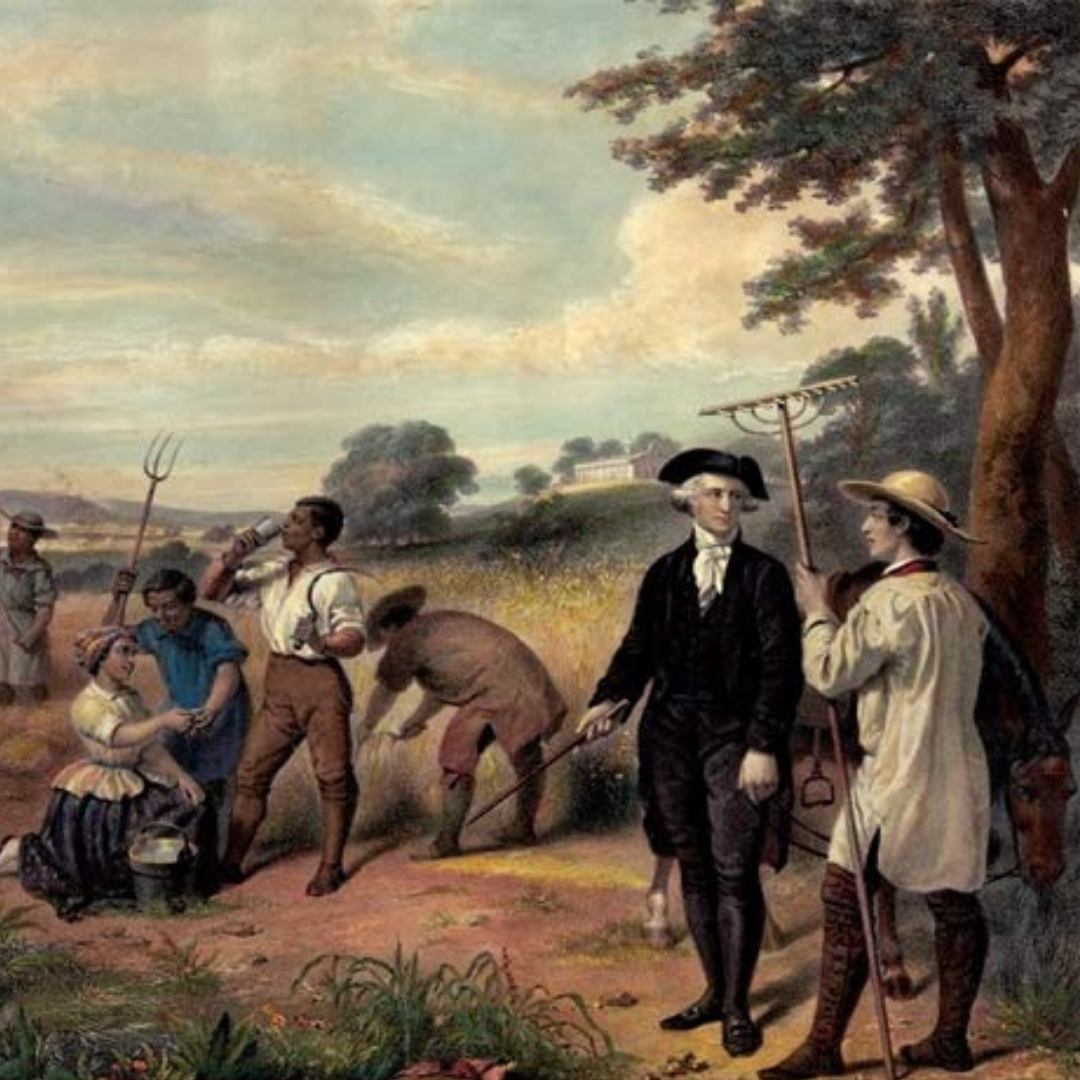
- This event has passed.
The Founding Farmer – The Rural Life of George Washington & His Relationship To The System of Slavery, told by Author Bruce Ragsdale
March 22, 2022 @ 6:00 pm - 7:00 pm

This event was postponed from Thursday, January 13, 2022 to Tuesday, March 22, 2022 due to international travel restriction involving COVID-19.
Calling all history buffs! The Library Society is thrilled to host author Bruce A. Ragsdale for an evening lecture on his new book, Washington at the Plow: The Founding Farmer and the Question of Slavery. In this thoroughly researched and fascinating read, Ragsdale explains how George Washington spent more of his working life farming than he did at war or in political office. For over forty years, he devoted himself to the improvement of agriculture, which he saw as the means by which the American people would attain the “respectability & importance which we ought to hold in the world.” As Ragsdale shows, it was the inefficacy of chattel slavery, as much as moral revulsion at the practice, that informed Washington’s decision to free the enslaved people at Mount Vernon after his death.
This event is in person and ticketed – To purchase tickets, click here.
To purchase your copy of Washington at the Plow from Buxton Books, click here.
About the Book:
Washington at the Plow depicts the “first farmer of America” as a leading practitioner of the New Husbandry, a transatlantic movement that spearheaded advancements in crop rotation. A tireless experimentalist, Washington pulled up his tobacco and switched to wheat production, leading the way for the rest of the country. He filled his library with the latest agricultural treatises and pioneered land-management techniques that he hoped would guide small farmers, strengthen agrarian society, and ensure the prosperity of the nation.
Slavery was a key part of Washington’s pursuits. He saw enslaved field workers and artisans as means of agricultural development and tried repeatedly to adapt slave labor to new kinds of farming. To this end, he devised an original and exacting system of supervision of the enslaved. But Washington eventually found that forced labor could not achieve the productivity he desired. His inability to reconcile ideals of scientific farming and rural order with race-based slavery led him to reconsider the traditional foundations of the Virginia plantation.
About the Author:
Bruce A. Ragsdale served for twenty years as director of the Federal Judicial History Office at the Federal Judicial Center. The author of A Planters’ Republic: The Search for Economic Independence in Revolutionary Virginia, he has been a fellow at the Washington Library at Mount Vernon and the International Center for Jefferson Studies.
